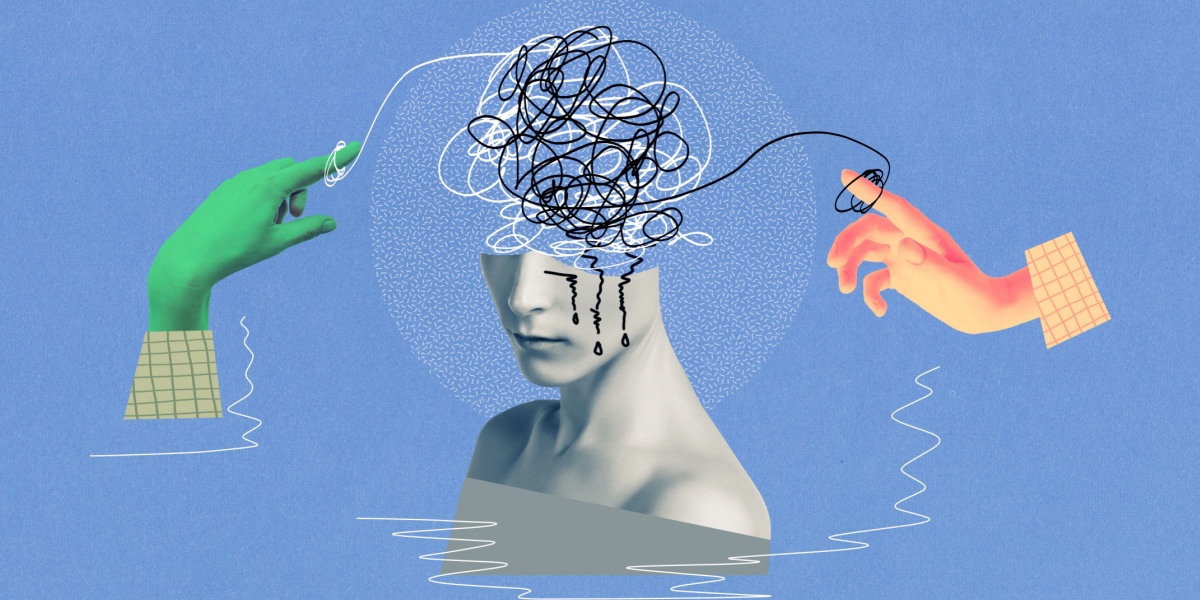Rising mental health awareness, combined with increasingly stressful lifestyles—especially in the post-pandemic era—has led to a heightened demand for counselors, therapists, and social workers, a demand that continues to outpace the availability of qualified professionals. [1][2]
As artificial intelligence (AI) continues to evolve, its application in mental health care has become increasingly sophisticated. Tools like ChatGPT are now capable of delivering structured therapeutic conversations based on cognitive behavioral therapy (CBT), raising questions about whether this tool could effectively fill the existing gap.
However, recent studies and real-world experience suggest that while AI can offer helpful support, human therapists remain essential, especially in the nuanced and deeply personal field of addiction and mental health recovery.

Understanding Cognitive Behavioral Therapy (CBT)
CBT is a widely used and evidence-based form of psychotherapy that focuses on identifying and restructuring negative patterns of thinking and behavior. Originally developed to treat depression, it has since become one of the most effective therapies for a range of mental health disorders, including depression, anxiety, post-traumatic stress disorder (PTSD), and substance use disorders. [4]
CBT typically involves exercises in recognizing cognitive distortions, behavioral experiments, and structured problem-solving.
Recent research comparing human therapists and ChatGPT in CBT
A recent study presented at the 2024 American Psychiatric Association Annual Meeting compared the quality of CBT offered by licensed human therapists to that generated by ChatGPT. Researchers analyzed over 1,100 CBT responses to patient scenarios from both human and AI sources, evaluating their performance based on empathy, adherence to CBT principles, and overall therapeutic quality. [3]
Findings revealed that while ChatGPT was able to match or even outperform human therapists in structured CBT techniques—such as identifying thought distortions and suggesting behavior modifications—it fell significantly short in demonstrating empathy and emotional nuance.
Human therapists were rated much higher in their ability to validate feelings, establish rapport, and adapt responses to complex emotional states. [3]
Where human therapists excel over ChatGPT
- Empathy and rapport: Emotional connection is one of the most significant strengths of human therapists. Therapists are trained to read subtle cues, such as tone of voice, body language, and hesitation, that enable them to respond in deeply validating and compassionate ways. This emotional resonance fosters trust, which is particularly crucial for individuals recovering from trauma or addiction.
- Contextual sensitivity: Human therapists can consider broader personal, cultural, and socio-economic contexts. AI models operate on generalized data and may struggle with culturally nuanced expressions or systemic issues, such as discrimination, poverty, or gender-based trauma.
- Ethical judgment: Mental health professionals are governed by strict ethical codes and are trained to respond to crises like suicidality or abuse disclosures. AI can flag potential issues, but cannot make real-time ethical judgments or ensure patient safety.
Limitations of AI-Driven CBT
AI-driven CBT has inherent limitations:
- Lack of personalization: AI can mimic CBT structure but cannot adapt in real-time to complex emotional landscapes or changing patient needs.
- Emotional blind spots: AI models lack genuine emotional awareness. Their responses may feel sterile or overly generalized, particularly in emotionally charged situations.
- Privacy and confidentiality: Using AI for therapy raises concerns about data security, consent, and the confidentiality of sensitive health information.
- Crisis management: AI cannot provide emergency intervention or conduct risk assessments in life-threatening situations.
The unique human touch: Why empathy matters in therapy
Empathy is a foundational pillar of effective therapy. Studies have shown that therapeutic alliance—the collaborative and affective bond between client and therapist—is one of the strongest predictors of successful outcomes, often more so than the specific type of therapy used. [5]
Empathy enables therapists to foster safety, reduce shame, and encourage openness—all critical elements in addiction and trauma recovery. AI is incapable of empathy and cannot offer the non-verbal comfort of a knowing nod, the moment of shared silence, or the subtle shift in tone that communicates genuine concern. These human elements can make the difference between relapse and resilience.
How AI can complement human therapy
This is not to say that AI has no place in mental health care as a complementary tool rather than a replacement. AI can:
- Increase accessibility: For individuals in remote areas or on waitlists, AI chatbots can provide interim support.
- Reinforce learning: Chatbots can offer CBT-based exercises and reminders between sessions.
- Support therapists: AI tools can assist clinicians with documentation, monitoring, and initial assessments.
- 24/7 availability: In moments of distress, an AI-based tool may provide immediate coping strategies or grounding techniques.
Used ethically and thoughtfully, AI can help bridge some of the gaps in current mental health systems—but it should always be overseen by a human professional.
Implications for addiction and mental health treatment
For individuals recovering from addiction, the therapeutic relationship often serves as a lifeline. Addiction is rarely just about substances; it’s about pain, trauma, disconnection, and identity.
AI might enhance but does not replace human connection. Recovery might involve relapse, shame, and the need to rebuild trust with oneself and with others. These processes require the nuanced support that only a human therapist can provide. Therapists can offer hope, accountability, and belonging—elements that are essential in healing from both substance use and the underlying wounds that fuel it.
In conclusion, while AI has made significant strides in delivering CBT and supporting mental health care, it lacks the depth, empathy, and contextual understanding necessary for long-term recovery work. As technology continues to evolve, the best path forward lies in integration—leveraging AI’s strengths while reaffirming the irreplaceable value of the human therapist.




